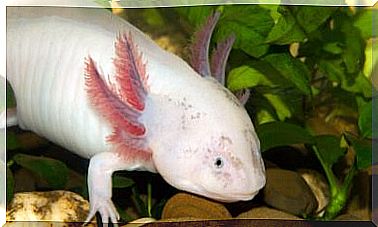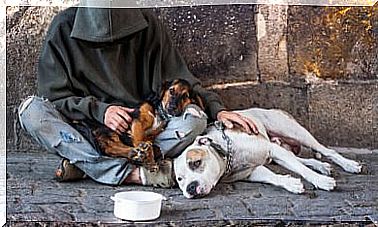Advice On How To Treat Kittens

A large number of kittens are recovered every day. Adopting them is an act that reveals great humanity, but which must be done with awareness, to avoid endangering the health of these little cats.
The ideal for a mammal is to be raised by the mother by being nursed for at least the first 45 days of life. It is the most natural and effective way to develop your immune system as well as your joints.
Unfortunately , it often happens that the mother dies during birth or is forced to flee to survive, thus leaving many newborn puppies in a state of profound vulnerability.
There are many associations that dedicate their time and resources to recovering these puppies. Furthermore, any person with good will can participate in this praiseworthy initiative.
How to get an abandoned kitten?
It is not uncommon to find abandoned kittens on the street. Felines are very vulnerable when just born: their independence and their hunting instincts develop over time. As a result, they are usually very frightened during their first few weeks of life.

To catch them, it is very important to remain calm and have patience. The ideal is to wait for the feline to trust you by approaching it of its own free will. However, this may never happen, especially if it is a newborn cat.
The use of gloves is recommended, and care must be taken that contact with the animal lasts as short as possible. The kitten may in fact have come into contact with dirt and microorganisms. It is therefore better to take precautions.
The best thing would be, once it is taken, to immediately place it in a puppy carrier, making sure it does not escape. If you don’t have a pet carrier available, you can use a cardboard box.
One of the first things to do with kittens once they are recovered is to take them to the vet or to an animal shelter. The puppy needs to be examined so that the right measures can be taken to preserve its physical integrity and defeat threats to its health.
First care for kittens
Before bringing kittens home, it is important to know how to take care of them and how to best prepare the home environment.
1. Air-conditioning the environment
Cats are much more sensitive to cold than dogs. Their body finds the best opportunities for development in hot environments.
During the first few weeks of life, kittens are unable to regulate their body temperature. The risk of suffering from hypothermia or lung disease is very high. For this, it is essential to give them the right warmth.
The best option is to get him an electric pillow with adjustable temperature, making sure that the animal does not burn.
It is also essential to condition the environment. The space dedicated to the rest of the kittens must be dry, clean and warm. In colder environments, especially during the winter season, it is important to pay particular attention to the right air conditioning of their spaces. The ambient temperature must always be around 24 ° C.
2. Prepare a comfortable environment
Kittens need to feel safe in order to rest well and regain energy. During the first phase of their life, felines usually sleep for a long time.
For this reason, after choosing the home environment to let them sleep, it is important to prepare the cradle. You can also use something similar, like a cage and a soft, clean blanket that they can rest on. The important thing is that they feel pampered.
3. Sanitize them
Once you have recovered a street kitten, it is essential to sanitize it before leaving it free around the house. This is a preventative measure to protect the health of the animal and that of those who live with you.
Since the newly recovered kitten will be very vulnerable, it is best not to give him a bath right away. The advice is to clean it with a damp towel specifically for puppies. When the cat is healthy and in strength, you can proceed with a more complete sanitation.

4. Physiological needs
Depending on the age of the kittens, stimulation of their urinary tract and excretion may be necessary.
A newborn cat (that is, up to the age of 12 weeks) cannot control its own ways, and it is the mother cat who, by licking her genital organs, is able to stimulate the urinary tract and excretion. This is why it is essential to sanitize cats before and after each meal, using the help of cotton or gauze soaked in hot water.
Once past 12 weeks of age, cats will be able to learn how to do their business on their own, right in the litter box.
5. Balanced nutrition
Kittens less than a month and a half old need to be nursed or otherwise fed entirely with infant formula. Contact a veterinary clinic before submitting your kitten to any diet.
From the age of 45, kittens can begin to try solid foods. Their administration must be gradual and preferably recommended by the trusted veterinarian.
To avoid overpopulation and abandonment of kittens, the advice is to neuter your kittens when they reach adulthood.








